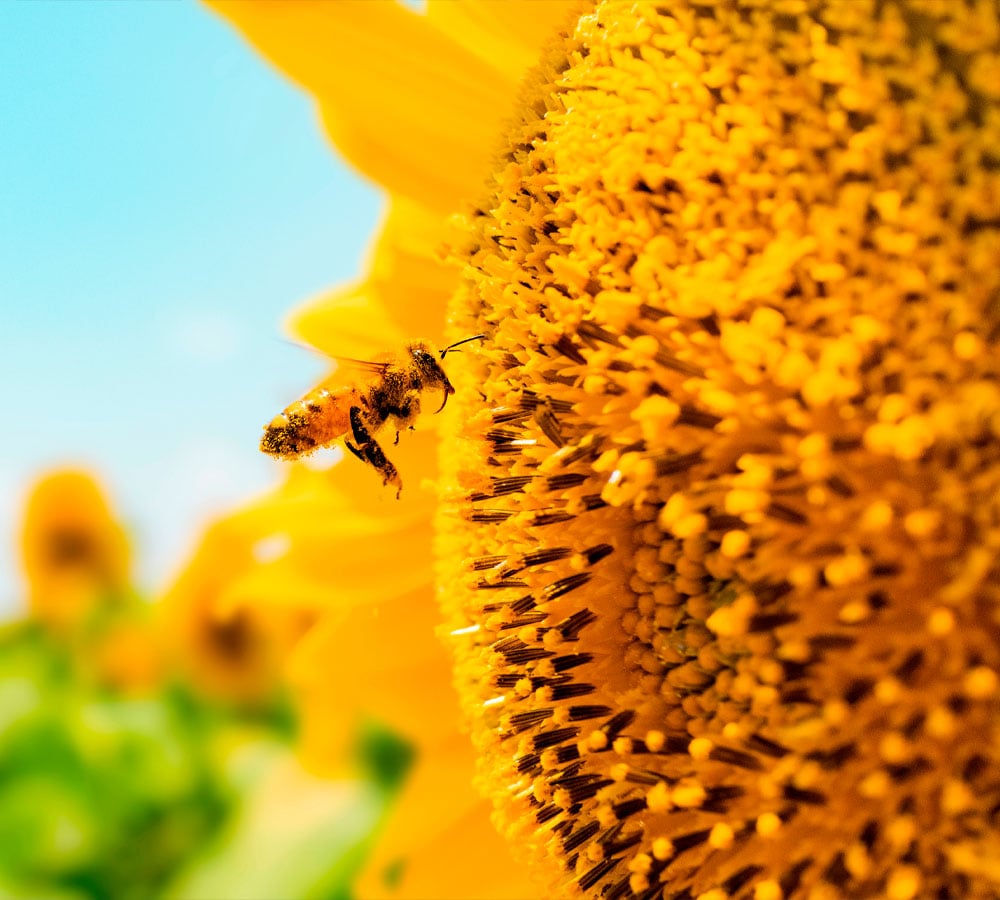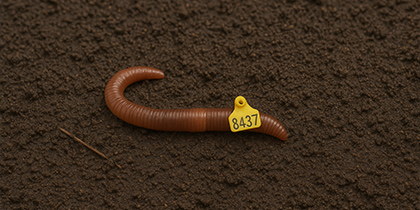A worm as an agricultural animal? Since early 2025, compost worms in the Netherlands have been legally equated with livestock. This has major implications for those who apply worm composting. In this blog, we explain what has changed-and where the rules wrangle.
Composting is the natural breakdown of organic waste, such as food scraps and yard waste, into a nutritious soil product. The waste naturally contains bacteria and fungi. If you put the waste in a pile and provide enough air and moisture, they go to work: they slowly break down the waste into a kind of crumbly soil that is nutritious for plants and soil.
Worm composting: what is it?
Worm composting-also called vermicomposting-is a form of composting in which compost worms convert vegetable and fruit waste into compost. These worms live just below the soil surface and specialize in digesting fresh organic waste.
waste.
In a specially designed worm hotel, these worms eat vegetable and fruit scraps. What they excrete is a fine, crumbly compost rich in nutrients for plants and soil.
Because the process requires little space, produces no odor and can be used locally, worm composting is increasingly being used by schools, businesses and municipalities. Thus, organic waste is given a new function as compost instead of ending up as residual waste.
What has changed in the law?
Worm composting was allowed for years. But since a change in the Fertilizer Act, that has changed. This law determines how manure-such as animal manure or compost-may be processed and spread. For example, farmers are not allowed to spread too much manure on their fields because it can be harmful to groundwater. The purpose of the law is to prevent soil contamination and over-fertilization.
Since the change in the law, which took effect Jan. 1, 2025, compost worms fall under the same rules as livestock, such as cows or pigs. That means their excrement-worm compost-is legally considered animal manure. And strict rules apply to that. In practice, this means that:
- Worm compost must first be approved by the Netherlands Food and Consumer Product Safety Authority (NVWA). They check whether the compost has been processed according to legal requirements and can be distributed safely.
- You have to record exactly where and how much worm compost you spread. This is only allowed on approved agricultural land such as fields or meadows of agricultural companies. Spreading in other places, such as school gardens or public green spaces, is no longer allowed by law.
- Fruit and vegetable scraps may no longer be fed directly to compost worms. Kitchen waste-such as vegetable, fruit and food scraps-may not be fed to livestock under the Fertilizer Act. Since compost worms legally fall under that category as of Jan. 1, 2025, these waste streams are also prohibited as feed for compost worms. This while these very streams normally form the basis of worm composting.
Still, there are exceptions. In some cases, feeding vegetable and fruit waste is still allowed, provided the waste is first heated at 70 degrees for 60 minutes. This kills pathogens, besides which useful microorganisms disappear. Precisely these help break down organic matter and ensure that the compost is airy, rich in nutrients and easily absorbable by plants. As a result, worm composting loses its power as a local and natural way to process fruit and vegetable scraps into natural soil nutrients. - You need to keep track of how many worms are in the worm hotel, how many are born-and when they die. Because worms are constantly reproducing, this is hardly practical. Still, the same recordkeeping requirements apply to this as to other species covered by the fertilizer law.
- An environmental permit is required for any site with a worm hotel. Because compost worms are legally considered livestock, worm hotels fall under the rules for animal husbandry. As a result, an environmental permit is required - just like building or expanding a barn.

Sweeping regulations
While compost worms make a huge contribution to global soil health-allowing plants to grow better and water to filter more easily-Dutch legislation makes that virtually impossible. By legally equating these worms with livestock, worm hotels fall under the same rules as livestock farms.
This leads to situations that teeter. For example, in theory, organizations must keep track of exactly how many worms are in your worm hotel and when they die-something that is not feasible in practice. The image of a worm with an ear tag is not meant seriously, but it does show where it chafes: regulations intended for large-scale livestock farming are applied to a simple, circular solution for organic waste.
Staying informed
Stay up to date on all new developments? Follow us onLinkedIn, listen to the "Feedstock to Think" podcast or subscribe to the newsletter. Are you curious about what Milgro can do for your operations and waste process? Then get in touch.














